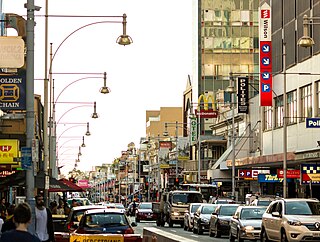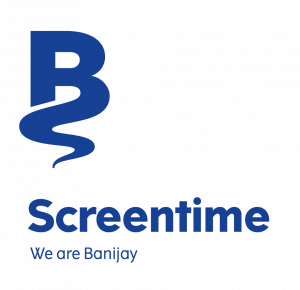Related Research Articles

The Adelaide Festival of Arts, also known as the Adelaide Festival, an arts festival, takes place in the South Australian capital of Adelaide in March each year. Started in 1960, it is considered one of the world's major celebrations of the arts, and a pre-eminent cultural event in Australia.

The Melbourne International Film Festival (MIFF) is an annual film festival held over three weeks in Melbourne, Australia. It was founded in 1952 and is one of the oldest film festivals in the world. MIFF is one of Melbourne's four major film festivals, in addition to the Melbourne International Animation Festival (MIAF), Melbourne Queer Film Festival (MQFF) and Melbourne Underground Film Festival (MUFF). As of 2017, the festival's Artistic Director is Michelle Carey.
Peter Kenneth Wintonick was a Canadian independent documentary filmmaker based in Montreal. A winner of the 2006 Governor General's Award in Visual and Media Arts, former Thinker in Residence for the Premier of South Australia, prolific award-winning filmmaker, he was one of Canada's best known international documentarians.

The Adelaide Film Festival is an international film festival usually held for two weeks in mid-October in cinemas in Adelaide, South Australia. Originally presented biennially in March from 2003, since 2013 AFF has been held in October. Subject to funding, the festival stages full or briefer events in alternating years; some form of event has taken place every year since 2015. It has a strong focus on local South Australian and Australian produced content, with the Adelaide Film Festival Investment Fund (AFFIF) established to fund investment in Australian films.
The Winnipeg Film Group (WFG) is an artist-run film education, production, distribution, and exhibition centre in Winnipeg, Manitoba, committed to promoting the art of Canadian cinema, especially independent cinema.
ACMI, formerly the Australian Centre for the Moving Image, at Federation Square, Melbourne, is Australia's national museum of film, television, videogames, and art.

Adelaide Festival Centre, Australia's first multi-purpose arts centre and the home of South Australia's performing arts, was built in the 1970s, designed by Hassell Architects. The Festival Theatre opened in June 1973 with the rest of the centre following soon afterwards. The complex includes Festival Theatre, Dunstan Playhouse, Space Theatre and several gallery and function spaces. Located approximately 50 metres (160 ft) north of the corner of North Terrace and King William Road, lying near the banks of the River Torrens and adjacent to Elder Park, it is distinguished by its two white geometric dome roofs, and lies on a 45-degree angle to the city's grid.

Adelaide city centre is the inner city locality of Greater Adelaide, the capital city of South Australia. It is known by locals simply as "the City" or "Town" to distinguish it from Greater Adelaide and from the City of Adelaide local government area. The population was 15,115 in the 2016 census.

Morphett Street is a main street in the west of the city centre of Adelaide, South Australia, parallel to King William Street and numbered from north to south. At its northern end it is part of the West End of Adelaide, a thriving cultural and entertainment precinct, with the Lion Arts Centre on the south-western corner of its junction with North Terrace.
The American Cinematheque is an independent, nonprofit cultural organization in Los Angeles, California, United States dedicated exclusively to the public presentation of the moving image in all its forms.
The Australian International Documentary Conference (AIDC) is an Australian conference for the promotion of documentary, factual and unscripted screen content, regarded as one of two major national conferences for filmmakers.

Hindley Street is located in the north-west quarter of the centre of Adelaide, the capital of South Australia. It runs between King William Street and West Terrace. The street was named after Charles Hindley, a British parliamentarian and social reformist.

Fuse or Fuse Festival, formerly Music Business Adelaide and Eat the Street, was an Australian contemporary music event held annually in the South Australian capital of Adelaide, from 1996 until 2012 or 2013. It showcased Australian musicians covering a wide range of genres in venues in the West End of Adelaide to industry professionals and fans, growing to three days in November 2003.

The Cinematheque, founded in 1972, is a Canadian charity and non-profit film institute, media education centre, and film exhibitor based in Vancouver, British Columbia.
The Palace is a 2011 Cypriot–Australian short film co-production, written and directed by Anthony Maras, that had its international premiere at the 2011 Telluride Film Festival and won Best Short Fiction Film and Best Screenplay in a Short Film in the 2012 Australian Academy of Cinema and Television Arts Awards.

OzAsia Festival, or simply OzAsia, is an Asia-focused arts festival in South Australia, presented by the Adelaide Festival Centre for two weeks in late October to early November each year. It features theatre, dance, music, film and visual arts from across Asia as well as outdoor events and food stalls. In some years it has focused on specific regions or countries in Asia.

Screentime is an Australian television production company, which develops and produces scripted and unscripted television programs in Australia and New Zealand. The company has produced numerous popular series including Popstars, the Underbelly format, RBT and Janet King.

Flickerfest is an international short film festival held annually in January at Bondi Beach, Sydney. It is an Academy and BAFTA recognised short film festival for both international and Australian film makers.
JamFactory is a not-for-profit arts organisation which includes training facilities, galleries and shops, located in the West End precinct of Adelaide and on the Seppeltsfield Estate in the Barossa Valley, north of Adelaide. It is supported by the South Australian Government and private donors.

The Lion Arts Centre, also known as Fowler's Lion Factory and Fowlers Building, with the main music venue within known as the Lion Arts Factory, is a multi-purpose arts centre, including studios, galleries, music and performance centres, and offices in Adelaide, South Australia. It is situated on the corner of North Terrace and Morphett Street in Adelaide's West End, in a refurbished and repurposed factory once owned by wholesale grocers D. & J. Fowler Ltd. With its distinctive red brick federation-style architecture, the 1906 building designed by Frank Counsell is state heritage-listed.
References
- 1 2 "History". Media Resource Centre. Retrieved 4 August 2019.
- 1 2 3 "Location". Media Resource Centre. Retrieved 4 August 2019.
- ↑ "Mercury Cinema". Adelaide Film Festival. Retrieved 5 August 2019.
- 1 2 "Media Resource Centre to launch initiative with Screentime, expand 2019 conference". if.com.au. 11 December 2018. Retrieved 5 August 2019.
- ↑ "What we do". Media Resource Centre. Retrieved 5 August 2019.
- ↑ "Adelaide Cinémathèque". Mercury Cinema. Retrieved 5 August 2019.
- ↑ "Hire us". Mercury Cinema. Retrieved 5 August 2019.
- ↑ "Mercury Cinema". Adelaide Fringe. Retrieved 5 August 2019.
- ↑ "Adelaide's Mercury Cinema unveils its 2016 program". if.com.au. 13 January 2016. Retrieved 5 August 2019.
- ↑ "Adelaide". Flickerfest. Retrieved 5 August 2019.
- ↑ "9th Iranian Film Festival Australia". Iranian Film Festival Australia. Retrieved 5 August 2019.
- ↑ "Film Fiestas". Mercury Cinema. Retrieved 5 August 2019.
- ↑ "[Home]". Screen Makers Conference. Retrieved 5 August 2019.
- 1 2 Tiley, David (3 October 2018). "Media Resource Centre aims for national conference". ArtsHub. Retrieved 5 August 2019.
- 1 2 Korsten, Tracey (23 January 2019). "Media Resource Centre Set for an Amazing 2019". GlamAdelaide. Retrieved 5 August 2019.
- ↑ "SASA". Media Resource Centre. Retrieved 4 August 2019.
- ↑ "PIP". Media Resource Centre. Retrieved 4 August 2019.
- ↑ "Springboard". Media Resource Centre. Retrieved 4 August 2019.